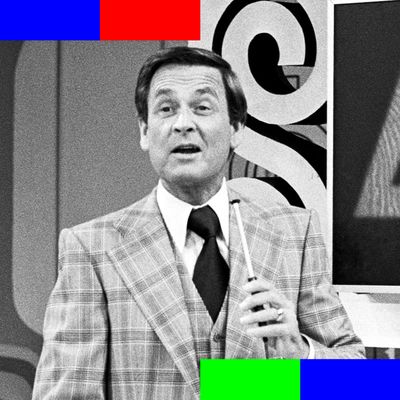
At a time when linear channels are fading into the shadows and a handful of supersize streaming services dominate, a six-year-old broadcast network devoted to old game shows might seem about as relevant to the future of TV as UPN. Yet the relatively tiny Buzzr is actually thriving right now — and it has nothing to do with a sudden uptick of consumer interest in episodes of Password or Supermarket Sweep. Instead,the Fremantle-owned network has managed to dramatically increase its audience and revenues over the past few years by diving headfirst into something called FAST — and its success so far points to a potential path forward for old-school broadcasters struggling to survive.
Short for free, ad-supported streaming TV, FAST is a rapidly expanding quadrant of the video universe best known to consumers through platforms such as Pluto TV, Xumo, and Tubi. ViacomCBS, Comcast and other media giants have snatched up these services because they’ve realized there’s huge profit potential in serving audiences who can’t — or simply don’t want to — pay for an increasingly expensive array of subscription-based streamers. Even TV and device makers such as Roku, Samsung, Vizo, and LG have jumped into the game. As a result, money is pouring in: Analysts at nScreenMedia estimate revenues from ad-supported streaming will nearly double over the next two years, reaching $4.1 billion by 2023.
It’s a remarkable development given that just a few years ago, free streamers were still seen as niche players, with the entertainment industry almost entirely focused on the bigger subscription services. Early on, that meant the Plutos and Xumos of the world had to scramble just to find content to get their services off the ground. It was around this time when Mark Deetjen, the Fremantle exec in charge of Buzzr, realized he had a product well-suited to take advantage of this new appetite for ad-supported streaming content. While most existing cable and broadcast channels are loaded with shows supplied by outside studios and are subject to complicated agreements with affiliates and cable operators, virtually all the programming on Buzzr is owned by parent company Fremantle. Instead of worrying about third parties signing off on a new means of distribution, Deetjen was free to move fast on FAST. And that’s just what he did.
In November 2018, Buzzr struck a deal with Pluto to simulcast its live feed as a channel on the app, thus allowing anyone with an internet connection to watch the network on their TV, no antenna or cable subscription required. Other free streamers, including Sinclair-owned STIRR and Samsung TV Plus, added Buzzr not long after. Over the course of just a few months, the network’s footprint dramatically widened, with a much younger cohort of cord cutters and cord nevers suddenly discovering the channel for the first time. Deetjen knew this was a significant milestone for the network, though at the time he didn’t think it was that big of a change. “I’ll be perfectly honest,” he told me during a recent telephone interview. “When we got into this business, it was, ‘Oh, wow, this is an interesting platform. It’s good for marketing and we can generate a little bit of money.’”
And then the space exploded.
As big media companies started devoting significant resources to marketing their new free platforms, the number of monthly active users of such apps began to skyrocket, as did the amount of income they generated. To wit, when Buzzr signed on in 2018, Pluto, still an independent start-up, was bringing in about $70 million in revenue each year. This year, under the umbrella of ViacomCBS, the streamer expects to pull in more than $1 billion in revenue, company CEO Bob Bakish told investors in August. Trickle-down economics might be a fraud at the federal level, but in this case, the success of the free streamers has resulted in a major windfall for Buzzr and other programmers who’ve leapt into the ad-supported arena. Deetjen tells me the channel’s weekly audience reach has increased by 50 percent since the free streaming era began — a huge gain at a time when linear networks are generally bleeding eyeballs, even with streaming factored in. And after Buzzr’s success, Fremantle closed a deal with Pluto to create a 24/7 channel devoted to Bob Barker-hosted episodes of The Price is Right and another featuring nothing but Baywatch.
Free streaming has also opened up a significant new spigot of cash. Rather than pay a flat fee, partners such as Roku Channel and IMDb TV take over Buzzr’s streaming ad inventory and then share a percentage of the revenue with the network based on how much viewership the channel generates. And because streaming viewers tend to be younger and more valuable to advertisers, that income is not insignificant. “The importance of FAST can’t be overstated,” Deetjen says. “It’s created an additional revenue stream, and it has made a material impact” on how Buzzr operates. Not surprisingly, Deetjen declined to “get into specifics” about exactly how much money is being generated by streaming, but he did say it is enough to allow Buzzr, for the first time ever, to strike deals with outside companies for new programming.
FAST money, for example, is why the network was just able to wrap a deal with Sony to bring on reruns of The Newlywed Game. It’s also what allowed Buzzr to partner with an independent supplier to unearth the long-lost 1970s quizzer Whew!, a move that Deetjen says brought new eyeballs to the service and convinced him audiences are willing to see Buzzr as “stewards of the genre” rather than just a repository for reruns. With the added revenue, “We can go out and find things that nobody else has found for a really long time,” he says. And much the way Netflix’s oft-hyped “virtuous cycle” works, that new content leads to more viewers, resulting in more revenue for Buzzr, which then leads to more new — well, classic — programming. “It has grown from this really interesting experiment to a real business,” Deetjen says.
Fremantle clearly agrees: In order to capitalize on the free streaming boom, the company today will announce it has carved out a new leadership position— executive VP of global channels — and that it has promoted Deetjen into the role. While still running Buzzr, he will now also be tasked with digging into the studio’s massive content library — which runs the gamut from Baywatch, American Idol, and The Price Is Right to hundreds of game show and lifestyle formats — and using it to to expand the company’s free streaming offerings in the U.S. and around the world. Deetjen, who will report to Fremantle International CEO Jens Richter for the new role, says he expects to “move fairly quickly” to take advantage of the growing opportunity.
Right now, Fremantle has three major kinds of streaming offerings: “Binge” channels devoted a single piece of IP (such as the aforementioned Price Is Right and Baywatch); linear-like channels devoted to multiple shows within a broader category (that’s Buzzr); and video on demand (like the dozens of episodes of 1970s Family Feud available on IMDb TV or Amazon Prime Video). Deetjen’s goal is to launch two or three new channels from those various buckets by the second quarter of 2022. He also says a digital offshoot of Buzzr exclusive to streaming is a real possibility. “We’re absolutely looking at different ways to leverage the brand,” he says.
International expansion is also a priority. Fremantle has already partnered with Pluto U.K. and IMDb TV’s recently launched U.K. service, and more deals will follow in the next year or two. And it won’t just be exporting American IP such as Baywatch. “We’ve got great content that comes out of a lot of different countries,” Deetjen says.
As much success as Buzzr and Fremantle have had so far in free streaming, the next few years will come with new challenges as the space matures. Up until now, having big companies in charge of platforms has been beneficial to content providers since their arrival helped accelerate growth and quickly turned it into a multibillion-dollar business. The downside is that these megacorporations are also filling their new services with programming from their own in-house studios and networks. Every few weeks seems to bring a new Pluto channel devoted to a ViacomCBS network or property, for instance, while Tubi, IMDb TV, and even the indie Roku Channel are spending serious cash on their own slate of original content.
None of this means there’s no longer room for outside programmers such as Fremantle. But with “more traditional content finding its way on to these platforms,” Deetjen notes, not every free streamer is going to be as receptive to pitches for channels as they might have been not long ago. “I don’t know that they are as ‘desperate’ for content as they were, say, 18 months ago,” he tells me, using my not particularly diplomatic phrase to describe the early days of the free streaming business.
That said, Deetjen believes other factors will more than offset any negative side effects resulting from the bigger players taking over. For one thing, device-makers such as Vizio and Samsung are devoting more resources to building out their own platforms, making them increasingly important in the free streaming game. And while Amazon (which makes the Fire TV stick) and Roku may have some more conflicts as they branch into originals, neither company has signaled any desire to close themselves off to outside suppliers. What’s more, much the way Netflix still does plenty of deals for shows it doesn’t own, the biggest free streaming players are still likely to continue snapping up compelling content from third parties, even if not quite as much as once before.
Deetjen thinks Fremantle has the goods to compete in this more mature landscape. “We offer certain benefits to these platforms that may not always be something that they can generate on their own,” he says, pointing to data showing Buzzr viewers engage with streaming content for a longer time than is typical for many free streaming channels. “We’re important to them, too.”
